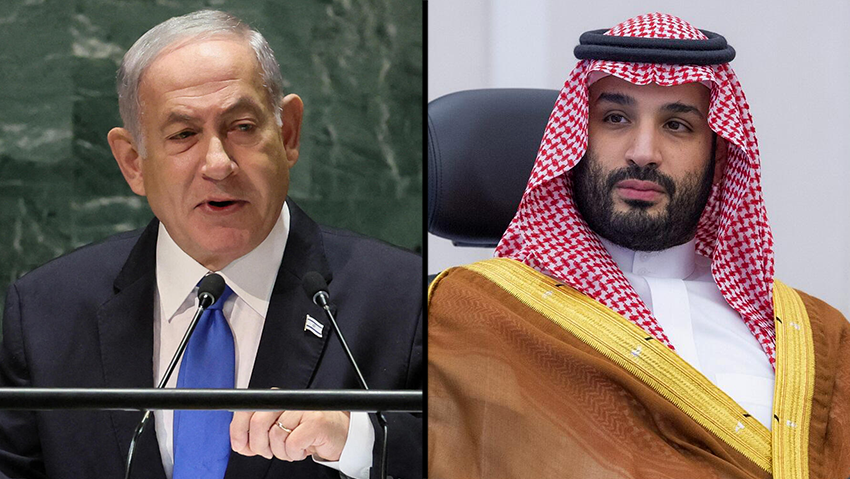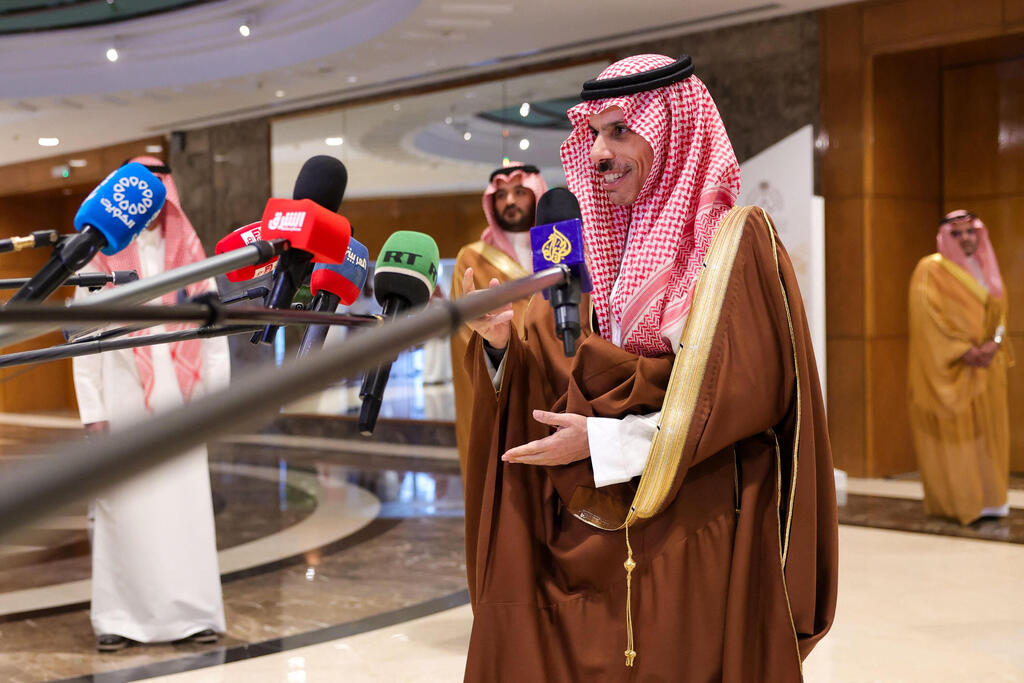Saudi officials expressed frustration Saturday over Israel’s move to block a planned visit by Saudi Foreign Minister Prince Faisal bin Farhan and a delegation of Arab foreign ministers to the West Bank, which was scheduled to take place Sunday in Ramallah.
Two senior Saudi officials told Ynet that Israel's decision came as an unwelcome surprise, describing it as “unexpected and negative.” The officials said the visit had been a personal initiative of Crown Prince Mohammed bin Salman and did not involve any coordination with Israel. “Israel was never a target or a party to this initiative,” they said.
The Israeli government’s message, conveyed from Prime Minister Benjamin Netanyahu’s office to Hussein al-Sheikh, the Palestinian Authority’s (PA) civil affairs minister and deputy to PA Chairman Mahmoud Abbas, said that Israel would not allow helicopters carrying the delegation to cross via the Allenby Bridge into the West Bank.
A senior Israeli official labeled the planned visit as “provocative.” Had it taken place, it would have marked the highest-level Saudi visit to Ramallah since the 1967 Six-Day War, when Israel captured the West Bank from Jordan. The visit had been coordinated secretly with Jordan, Egypt, Qatar, the United Arab Emirates and Turkey, the Saudi officials said.
Get the Ynetnews app on your smartphone: Google Play: https://bit.ly/4eJ37pE | Apple App Store: https://bit.ly/3ZL7iNv
They noted that Saudi Arabia has refrained from sending high-level envoys to the Palestinian territories under both Yasser Arafat and Mahmoud Abbas. “We believed we were nearing agreements, but it all fell apart,” one official said.
There was no indication that the initiative included an attempt to coordinate with Netanyahu’s office. When asked why no meeting was sought with Netanyahu, the Saudi officials responded, “This was Bin Salman’s initiative—Israel was not part of the plan.”
2 View gallery


Prime Minister Benjamin Netanyahu and Saudi Crown Prince Mohammed bin Salman
(Photo: AP, Reuters/Brendan McDermid)
The officials also pointed to a deterioration in Israeli-Saudi relations, attributing it to IDF operations in Gaza and the West Bank. “You in Israel know well that relations have deteriorated due to military actions,” they said.
According to the Saudi officials, the Palestinian Authority was also caught off guard by Israel’s refusal. Al-Sheikh reportedly threatened to appeal to Arab states to pressure Israel to reverse its decision.
Foreign Minister bin Farhan ultimately canceled the visit after being informed that access to Ramallah would be denied and he was said to be angered by the development. “There is no reason to face such rigidity,” one official said. “For us, this is serious Israeli harassment. Ramallah is under Palestinian sovereignty. Israel allows Abbas and his advisers to fly to Arab countries—why deny entry to official representatives from Arab states?”
The visit was also intended as a symbolic prelude to a broader diplomatic effort, including a planned June announcement at the United Nations General Assembly in New York, where Saudi Arabia and other Arab states are expected to support a Palestinian bid for statehood. Palestinian sources said the visit was designed to generate media momentum and bolster Arab backing for the Abbas-led initiative.


